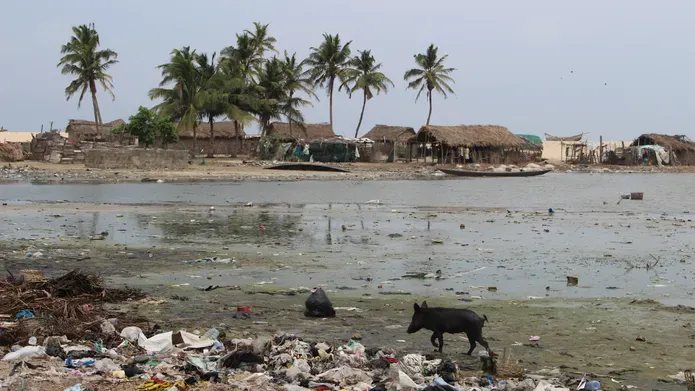Research project
DECCMA: assessing the options, limits and potential for adaptation to climate change in deltas
DECCMA: assessing the options, limits and potential for adaptation to climate change in deltas

Completed
January 2014
January 2018
Funding
Funders
International Development Research Centre (IDRC) and Department for International Development (DFID)
Large tracts of land at low lying elevation make deltas vulnerable to sea-level rise and other climate changes impacts. Deltas have some of the highest population densities in the world. The adaptive strategies available to residents of deltas (such as disaster risk reduction, land use management or polders) may not be adequate to cope with pervasive, systematic, or surprise changes associated with climate change. Large movements of deltaic people are often projected under climate change.
This project analysed the impacts of climate change and other environmental drivers across contrasting deltas in Africa and Asia. We used surveys, participatory research and economic methods to examine processes of migration and used an integrated assessment to contrast potential migration with other possible adaptation approaches.
People
Project lead(s)
Andrew AllanExternal team members
Alistair Rieu-Clarke (former member of staff)
Chris Spray (former member of staff)
University of Southampton
University of Exeter
Bangladesh University of Engineering and Technology
Centre for Environmental and Geographic Information Services (Bangladesh)
University of Dhaka
South Asian Network on Economic Modelling (SANEM)
Water Resources Planning Organisation, Bangladesh
University of Ghana; Jadavpur University, Kolkata; Refugee and Migratory Movements Research Unit; Centre for Environment and Development, India
Chilika Development Authority
Indian National Remote Sensing Centre (NRSC)
Sansristi (India)
Basque Centre for Climate Change (BC3)
Food and Agriculture Organization of the United Nations (FAO)
Kulima – Integrated Development Solutions
MET Office
Plymouth Marine Laboratory